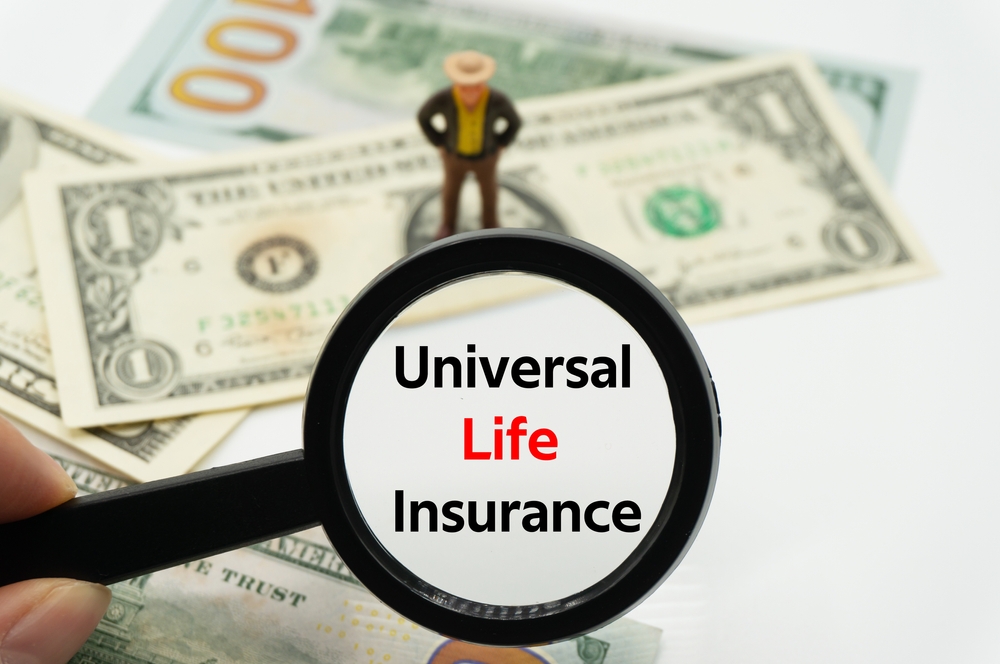Many people choose universal life insurance (UL) because it offers cash value growth—but does it really deliver what policyholders expect?
Universal life policies, particularly Indexed Universal Life (IUL) and Variable Universal Life (VUL), are often marketed as flexible, high-growth alternatives to whole life insurance. However, the reality is that UL policies often come with hidden costs, unpredictable growth, and limited access to cash value.
If you’re considering a universal life insurance policy for its cash value benefits, here’s what you need to know—along with a strategy that actually guarantees long-term cash growth and financial security.
How Does Cash Value Work in Universal Life Insurance?

Cash value is the savings component of a life insurance policy, designed to accumulate over time. In universal life insurance (UL), part of your premium covers the cost of insurance (COI), while the remaining portion is allocated to cash value.
Unlike whole life insurance, where growth is guaranteed, universal life insurance relies on external factors to determine how (or if) cash value accumulates. Depending on the type of UL policy, growth is based on:
- Market Index Performance (Indexed Universal Life – IUL): Cash value growth is tied to the performance of an external market index, such as the S&P 500 or NASDAQ. While this offers upside potential, growth is often limited by caps, participation rates, and minimum return thresholds.
- Stock and Bond Investments (Variable Universal Life – VUL): Cash value is directly invested in a portfolio of stocks and bonds, similar to mutual funds. This provides exposure to the market’s full upside but also carries downside risk, including potential loss of principal.
While this flexibility may seem appealing, many policyholders don’t realize that universal life’s cash value isn’t guaranteed. If the market underperforms or costs within the policy increase, the cash value may stagnate, decline, or even deplete entirely—jeopardizing both the policy’s financial benefits and long-term viability.
3 Hidden Risks of Universal Life Insurance Cash Value
If you’re considering universal life insurance for its cash value benefits, it’s important to understand the risks that may impact your financial strategy. Unlike whole life insurance, where cash value grows at a guaranteed rate, universal life policies rely on market performance and internal cost structures—factors that can reduce or even eliminate expected benefits.
Below are three key risks to consider before choosing universal life insurance.
1. Unpredictable Growth (or No Growth at All)
Indexed Universal Life (IUL) policies link cash value growth to the performance of a market index, such as the S&P 500 or NASDAQ.
Variable Universal Life (VUL) policies invest cash value in stocks and bonds, mimicking the behavior of a mutual fund.
While these strategies may seem appealing, they come with significant drawbacks:
- If the market underperforms, your policy may earn zero returns or even lose value.
- IUL policies impose growth caps and participation rates, meaning you never receive the full market return—only a fraction of its gains.
- Many UL policies require a minimum return threshold before gains are credited, which means even modest market growth may not translate into actual policy growth.
What This Means for You:
If you’re relying on your policy’s cash value for retirement or future financial goals, universal life insurance may fail to deliver, particularly in volatile or declining markets.
2. Rising Insurance Costs Can Deplete Cash Value
Unlike whole life insurance, which has fixed, predictable premiums, universal life policies come with an increasing cost of insurance (COI).
- As you age, the COI rises, consuming a larger percentage of your cash value to cover insurance expenses.
- If your policy’s cash value doesn’t grow as expected, you may be forced to pay higher premiums out-of-pocket just to keep the policy active.
- Many policyholders assume they can use their cash value to cover premiums, only to discover it depletes too quickly, leaving them with an underfunded or even lapsed policy.
What This Means for You:
If your goal is to use your cash value to fund retirement, investments, or future expenses, universal life policies may not provide the financial security you expect.
3. Limited Access to Your Cash Value
A common misconception about universal life insurance is that you can freely access your cash value whenever needed. While policy loans and withdrawals are possible, there are critical limitations that can impact your financial flexibility.
- Withdrawals reduce your death benefit – Unlike whole life, where loans allow your cash value to continue growing, UL withdrawals permanently lower your coverage.
- Loan interest can be costly – Many UL policies charge high interest rates on policy loans, which can erode overall returns and make borrowing expensive.
- Policy lapse risk – If too much cash value is withdrawn, the policy can lapse, leaving you without coverage and with tax consequences.
What This Means for You:
Unlike whole life insurance, where you can borrow against your cash value while it continues compounding, universal life often forces you to choose between accessing funds and maintaining policy benefits.
A Better Alternative: Whole Life Insurance for Guaranteed Cash Value
If your goal is to build tax-advantaged cash value that you can rely on, whole life insurance offers predictable growth, financial flexibility, and premium stability—advantages that universal life policies simply cannot guarantee.
Why Whole Life Insurance is the Superior Choice for Cash Value
- Guaranteed Growth – Your cash value increases at a fixed, predictable rate, regardless of market conditions.
- Uninterrupted Compound Interest – With The Family Bank Strategy™, you can borrow against your policy while your cash value continues earning interest, allowing your money to grow in two places at once.
- Dividend Potential – Many mutual insurance companies have a long history of paying annual dividends, further enhancing your cash value accumulation.
- No-Lapse Protection – Whole life policies are designed to provide lifetime coverage, ensuring financial security for your loved ones without the risk of policy expiration.
What This Means for You
Instead of relying on market-driven cash value that may underperform or disappear, whole life insurance provides certainty, control, and financial leverage. With the right policy structure, you can maximize wealth growth, cash flow, and long-term financial security—all without the risks associated with universal life insurance.
Case study: What to Do When Universal Life Insurance Fails
What If You Already Have a Universal Life Policy?
If you already own a universal life insurance policy and are concerned about its performance, rising costs, or lack of guaranteed cash value growth, you have options. Many policyholders discover that their UL policy is not delivering the financial security or flexibility they expected, but a strategy exists to improve or transition to a more stable solution.
Steps to Improve or Transition Your Policy
- Policy Review & Optimization – A Wealth Strategist can assess your current policy, evaluate its cash value performance, and explore adjustments to enhance its benefits.
- 1035 Exchange – If your UL policy is underperforming, you may be able to transfer its cash value into a properly structured whole life policy. This exchange preserves tax advantages while allowing you to benefit from guaranteed growth, stable premiums, and lifetime coverage.
If your current policy isn’t working as expected, you don’t have to stay locked in. There are strategies available to protect your wealth, maximize cash value growth, and transition to a more secure financial foundation.
Maximize Your Wealth with Paradigm Life
At Paradigm Life, we specialize in structuring whole life policies that provide maximum cash value growth, financial security, and flexibility.
Want to see what a properly structured whole life policy can do for your wealth strategy? Schedule a free consultation with a Wealth Strategist today.







